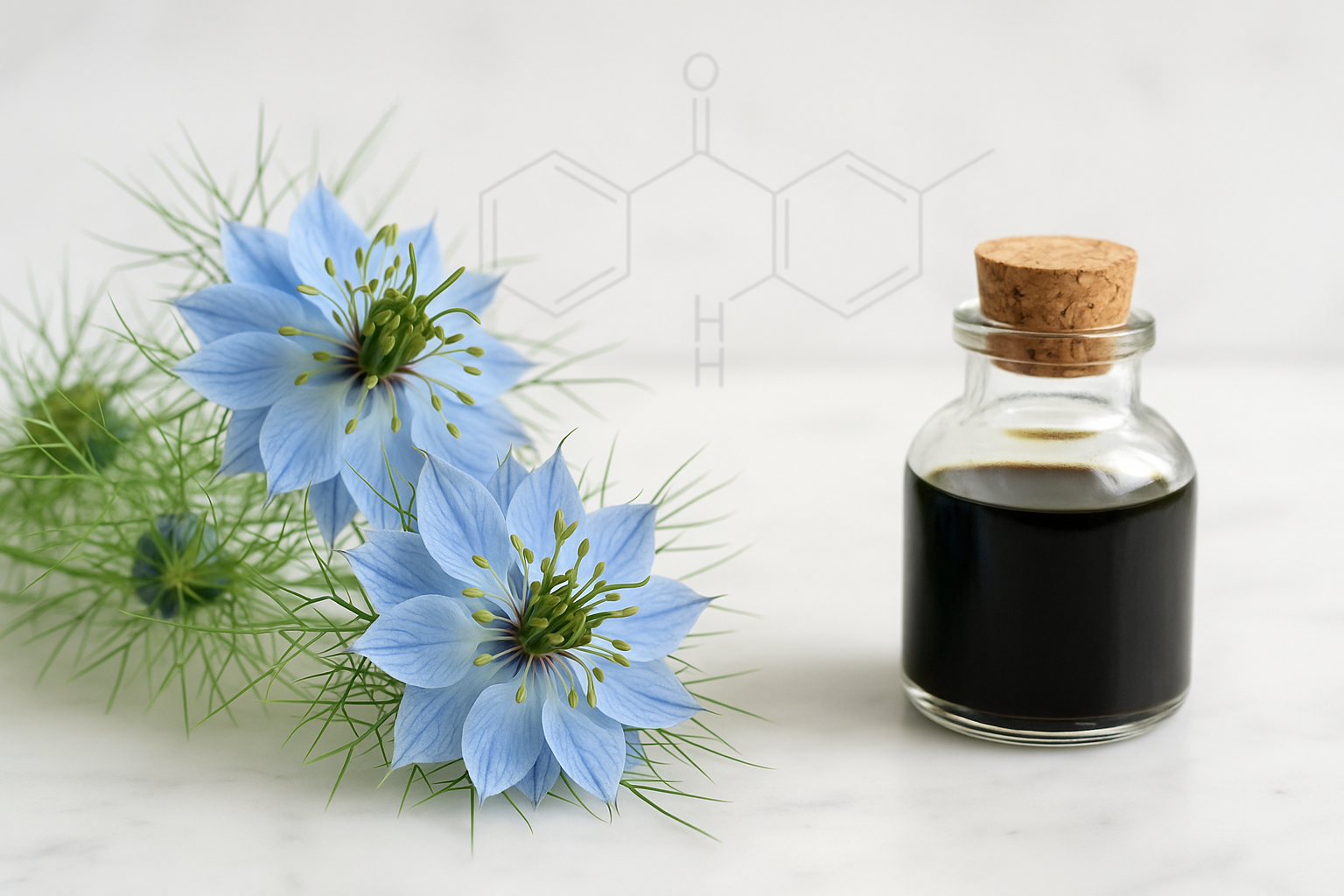Why People Are Looking at Black Seed Oil
Many people today are interested in natural ways to support their health alongside conventional care. For those managing blood sugar, researchers have been studying Nigella sativa (also known as black cumin or black seed oil) as one possible area of interest.
Black seed oil has a long history of traditional use dating back thousands of years. Ancient texts and archeological findings note its use in Egypt and the Middle East. Today, modern science is beginning to investigate its bioactive compounds—especially thymoquinone—for their role in antioxidant and metabolic support (Ahmad et al., 2013).
What Is Black Cumin?
Black cumin refers to the small black seeds of the Nigella sativa shrub, which is native to parts of Western Asia, the Mediterranean, and the Middle East. These seeds can be consumed whole, ground, or pressed into oil. The oil contains concentrated levels of thymoquinone and other phytochemicals, which are being studied for their potential roles in metabolic health (Ahmad et al., 2013).
Scientific Studies on Black Cumin and Blood Sugar
Human Trials
Randomized controlled trial (2010, Indian Council of Medical Research):
Adults with type 2 diabetes who took 2 g/day of black seed powder for 12 weeks experienced significant improvements in fasting blood glucose, HbA1c, and insulin resistance compared with baseline (Bamosa et al., 2010).
Systematic review and meta-analysis (2020):
A pooled analysis of randomized controlled trials found that Nigella sativa supplementation significantly improved fasting blood glucose and HbA1c compared with placebo, with no major adverse effects reported (Hallajzadeh et al., 2020).
Animal Research
Glucose tolerance in rats:
In an experimental model, supplementation with 2 g/day of Nigella sativa seed powder for 6 weeks improved glucose tolerance when compared with untreated rats. The effects were similar to the reference drug metformin in this preclinical setting (Fararh et al., 2002).
Note: This was an animal study; findings may not directly apply to humans.
How It's Been Used in Studies
Seeds vs. oil: Research has tested both seed powder (1–3 g/day) and oil (2–3 mL/day). Black seed oil provides a more concentrated form of thymoquinone.
Duration: Most human studies lasted between 8–12 weeks.
Formulation: Capsules, oils, or ground seeds were used depending on the study.
Because taste can be strong, people in trials often consumed black seed with food or incorporated it into meals.
Possible Side Effects
In published studies, black seed oil has generally been well tolerated. Reported side effects include:
- Mild digestive upset (stomach discomfort, reflux, nausea)
- Rare allergic reactions with topical use
High doses are not recommended. Pregnant or nursing individuals, or those with medical conditions, should consult a healthcare provider before use.
Key Takeaways
- Nigella sativa (black cumin/black seed oil) has been studied in both humans and animals for its role in supporting healthy blood sugar levels.
- Human trials suggest 2 g/day of seed powder or ~2.5 mL/day of oil may improve fasting glucose and HbA1c over 8–12 weeks.
- Animal studies support these findings, though results in animals don't always translate directly to humans.
- Black seed oil is generally safe when taken in moderation, but should always be used under the guidance of a healthcare provider.
Disclaimer: These statements have not been evaluated by the Food and Drug Administration. This product is not intended to diagnose, treat, cure, or prevent any disease. Always consult your healthcare provider before starting any new supplement.
References



